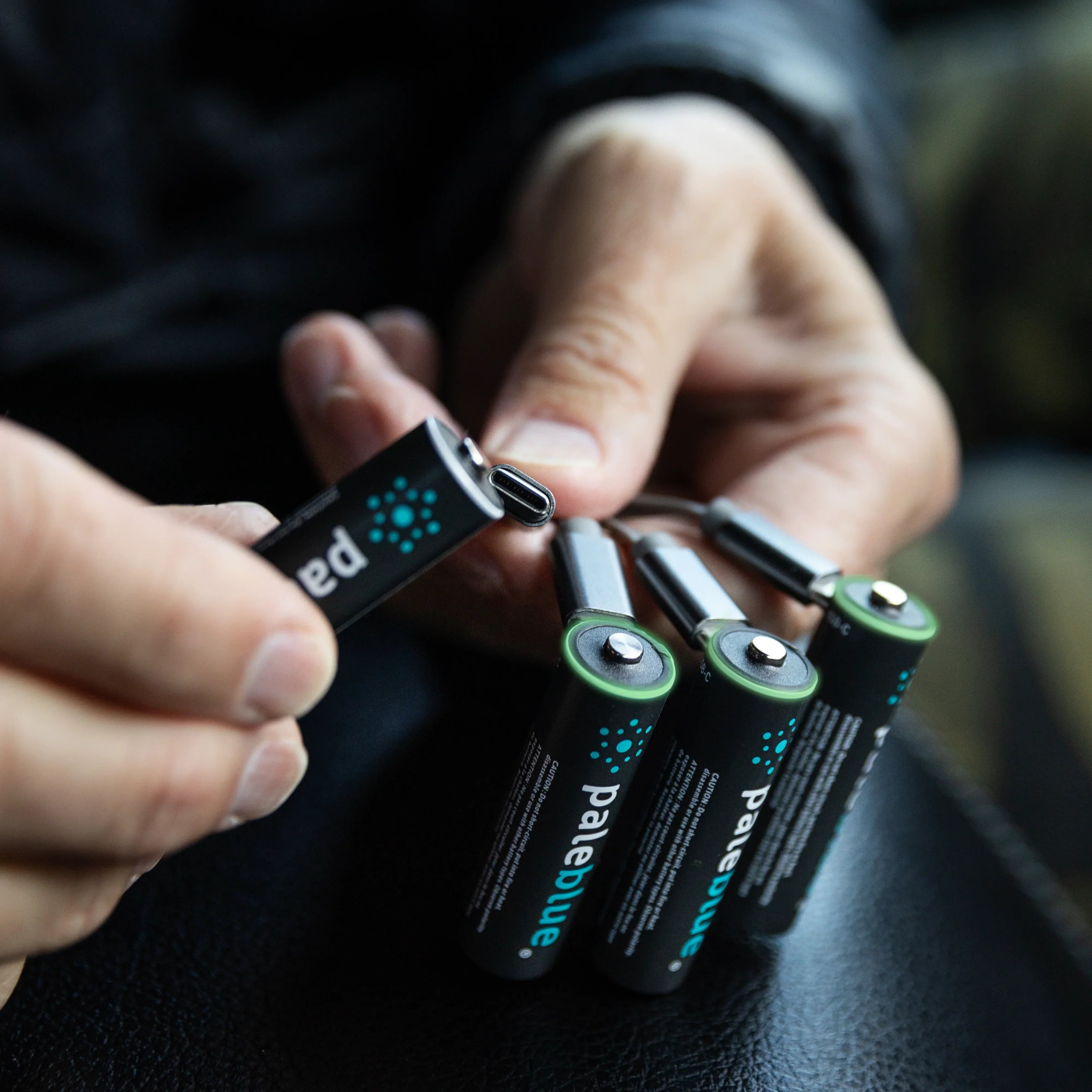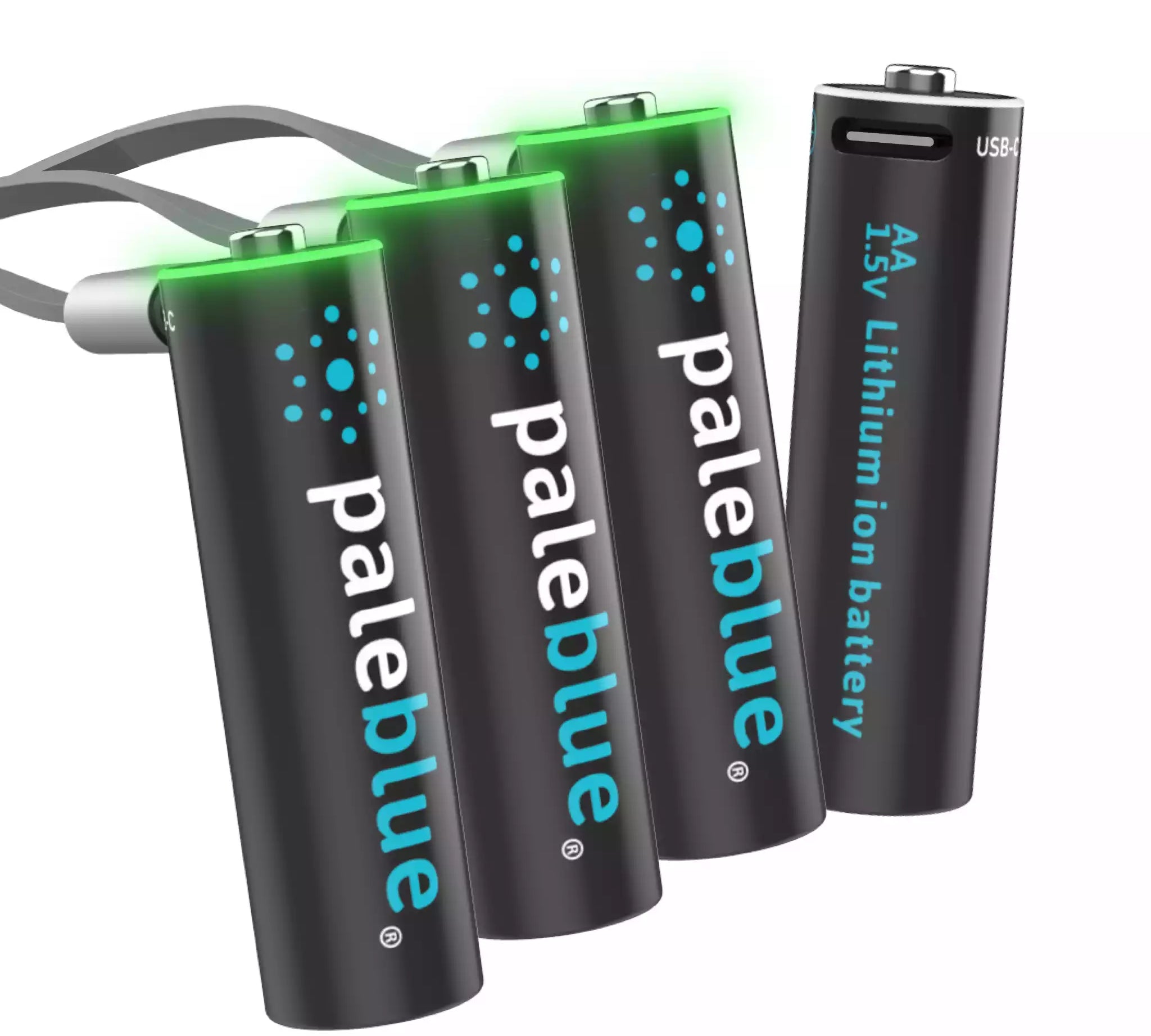Battery FAQs

Last Updated: July 2025
-
Is it normal for a battery to get warm in my pocket?
No, a battery should not heat up when idle. Storing batteries in your pocket can cause a short circuit, leading to leakage or rupture. -
How do temperatures affect batteries?
Batteries perform best at room temperature. Avoid storing them in extreme heat or cold, as it can degrade their effectiveness. Refrigeration is unnecessary and not recommended. -
Can alkaline batteries be recharged?
Only recharge batteries marked as "rechargeable." Attempting to recharge non-rechargeable batteries can cause leakage or rupture. -
Should I mix old and new batteries?
No, mixing new and old batteries can cause leakage or reduced performance. Always replace all batteries at the same time. -
What should I do if a battery leaks?
Use gloves and safety glasses to clean up any battery leakage. Remove the leaking material carefully and make sure the device is dry before inserting new batteries. Always dispose of batteries properly. -
How do I dispose of batteries properly?
Recycle all rechargeable batteries and dispose of others according to local guidelines to minimize environmental impact. -
What happens if a battery leaks inside a device?
When cleaning up after a battery leak, take proper precautions such as using gloves and cleaning with a soft tool. Ensure the device is thoroughly dry before inserting fresh batteries. -
How does a battery work?
Batteries generate electricity through an electrochemical reaction. The zinc at the anode undergoes oxidation, and the manganese dioxide at the cathode undergoes reduction. This process powers devices by creating a flow of electrons.
By following these safety guidelines, you can extend the life of your batteries, ensure their safe use, and help protect the environment.
What should I do if my battery got wet and has a white powdery residue?
If a battery gets wet or has a white, powdery substance on it, avoid handling it as much as possible. Only touch it when necessary for safe removal and disposal. Wash your skin and any clothing that came in contact with the battery using soap and water. If the battery contacts your eyes, rinse with water for at least 15 minutes and seek medical attention immediately.
Is it safe for my child to play with batteries?
No, young children should never play with batteries. While they are common objects, batteries generate power through chemical reactions, and mishandling or playing with them can be dangerous. Though most batteries contain chemicals that are not harmful to skin, they should still be treated with caution. Keep batteries away from the eyes and never ingest them. Always supervise children closely when they are around batteries, and contact a doctor if any exposure occurs. For emergencies, you can reach the National Battery Ingestion Hotline at 800-498-8666.
Should I clean the battery compartment?
For optimal performance, make sure the battery contact points and the battery compartment are clean. Use a clean pencil eraser or cloth to wipe them down each time you replace batteries.
Can I light a battery on fire?
Never set a battery on fire or dispose of it in flames. Doing so can cause the battery to explode, leak, or create other hazards.
Is it necessary to remove batteries from my device if I’m not using it for a while?
Yes, it’s best to remove the batteries from devices you won’t be using for an extended period. This can help prevent damage caused by leaking or corrosion.
Should I store my batteries in the fridge or freezer?
It's best to store batteries at room temperature in a dry, cool place. Avoid storing them in extreme heat or cold, as these conditions can degrade performance. Refrigeration isn’t necessary and may not be ideal for your battery.
What do the Chinese characters on my batteries mean?
The Chinese characters indicate that the batteries are free from mercury.
What is inside a battery?
Batteries are intricate devices that convert chemical energy into electrical energy through a redox reaction. A battery consists of an anode, cathode, and electrolyte, each made from materials chosen for their ability to either give up or attract electrons. The anode is typically a metal, the cathode a metallic oxide, and the electrolyte a salt solution that allows ions to flow.
How do lithium and alkaline batteries differ?
Lithium and alkaline batteries use different chemical compositions designed to optimize performance in specific devices. Lithium batteries are lightweight and compact, often used in particular applications, while alkaline batteries are a common choice for a wide variety of consumer electronics.
When should I remove batteries from a device?
You should remove batteries during the following circumstances:
-
The device won’t be used for several months
-
The batteries are drained or worn out
-
The device is powered by household AC current
How should I insert batteries?
Always ensure that the positive (+) and negative (–) terminals are aligned according to your device's instructions. Incorrect insertion of batteries in devices that use multiple cells can cause leakage, damage or not work at all.








